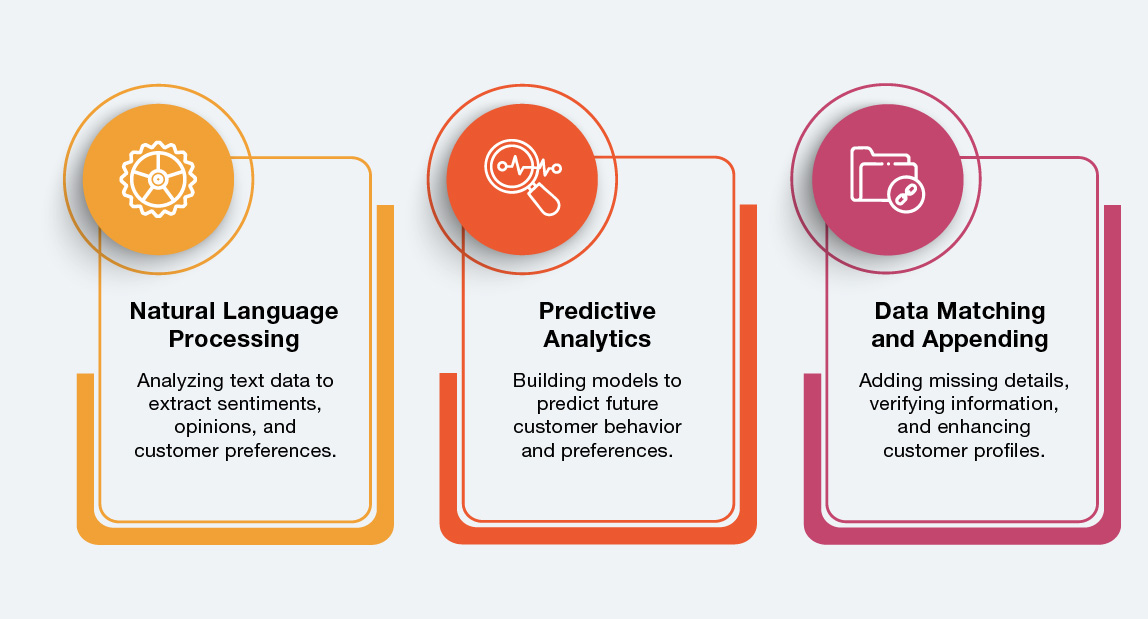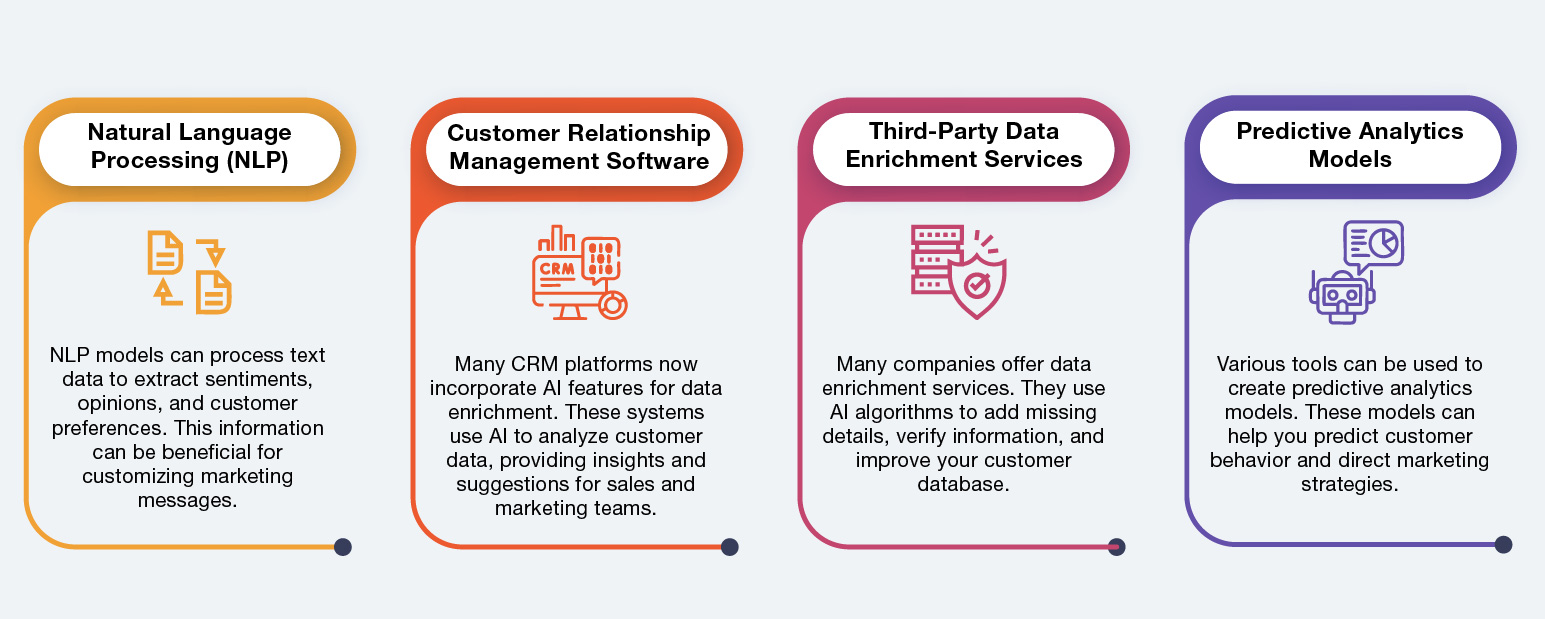How AI Can Revolutionize Data Enrichment for Smarter Marketing Decisions
Posted on: November 22nd 2024
Data isn’t just valuable in today’s competitive landscape—it’s the lifeblood of intelligent decision-making. Beyond these words, let’s delve into a specific application: customer data enrichment. By harnessing artificial intelligence (AI), companies can transform raw data into actionable insights. This process enhances customer experiences, supercharges marketing efforts, and propels business growth.
The Importance of AI in Customer Data Enrichment
AI is an essential step in customer data enrichment because it speeds and automates data enrichment in the following ways:
Data Quality Enhancement: AI algorithms can detect and correct customer data with gaps, ensuring that the data companies use for marketing decisions is latest and reliable.
Data Expansion: AI can add more data to existing customer profiles, including details like online behavior, purchase history, and social media activity, helping companies create comprehensive and robust customer profiles.
Predictive Analytics: Machine learning models can forecast future customer behavior and preferences based on past data. This allows businesses to customize their marketing campaigns and provide customers with more suitable deliverables.
How to Use AI for Data Enrichment
The first step is to collect raw data (structured or unstructured) from various sources, such as customer databases, websites, social media portals and apps, and polls.
The next step is to clean the data by finding and fixing errors, missing values, and inconsistencies. This ensures that the data is ready for enrichment.
The third step is integrating the data from different sources to create an exhaustive data set. This way, companies can have all the relevant data ready for enrichment.
The fourth step is identifying the specific features or attributes the companies want to enhance, including demographic information, behavior patterns, or other data to help them better understand their customers.
The fifth step is choosing the suitable AI model and tool based on the companies’ data and business goals. Some standard AI techniques and tools for data enrichment are natural language processing, machine learning models, and third-party data enrichment services.
The sixth step is to apply AI algorithms to enhance the data set. Depending on what AI models the companies choose, this could involve:

The seventh step is to validate the results to ensure they are error-free and detailed. This step may involve comparing the enriched data against trusted sources or using validation checks.
The eighth step is to store and manage the enriched data securely; while doing so, please follow data privacy laws and implement data security measures to protect client information.
The ninth step is to address privacy and ethical issues. Get consent, specify data ownership, and establish data retention guidelines to alleviate privacy concerns.
The final step is to test and validate the enriched data in real-world scenarios. At this stage, you can measure the effectiveness of your data enrichment process and make necessary adjustments.
AI Solutions for Enhancing Your Customer Data
There are several AI solutions for customer data enrichment, and some of them include:

How to Use AI for Customer Data Enrichment Responsibly
AI can help businesses enhance their customer data and improve their marketing outcomes. However, it also poses severe challenges for privacy protection. Companies must ensure they responsibly use AI for customer data enrichment. Some of these steps are:
- Implementing Strong Security Measures: Businesses must protect customer data from unauthorized access, misuse, or theft. They must use encryption, authentication, and backup systems to secure their data.
- Obtaining Clear Consent: Businesses must inform their customers about how they use their data and what benefits they can expect. They need their customers’ permission before collecting, processing, or sharing data.
- Addressing Bias Concerns: Businesses must check their AI models for potential bias or discrimination. They need to use diverse and representative data sets, test their models for fairness and accuracy, and monitor their outcomes for adverse impacts.
- Balancing the Power of AI With the Rights of Individuals: Businesses must respect their customers’ privacy and preferences. They must allow customers to opt out, delete, or correct their data. They also need to comply with data privacy laws and regulations.
Conclusion
It has become necessary for organizations to leverage AI for customer data enrichment, which is not just a strategic advantage—it is essential in today’s data-driven marketing landscape. It helps businesses to transform raw data into actionable insights to drive effective marketing strategies by enhancing data quality, expanding customer profiles, and utilizing predictive analytics. The steps mentioned for implementing AI—from data collection and cleaning to ethical considerations—ensure that companies can responsibly harness the power of AI while safeguarding customer privacy.
Organizations must prioritize technological advancements and ethical practices as they navigate the complexities of integrating AI into their marketing efforts. Doing so can create a more personalized and engaging customer experience that meets and anticipates customer needs. Ultimately, the successful application of AI in customer data enrichment will lead to improved marketing outcomes, increased customer loyalty, and sustainable business growth in an increasingly competitive marketplace.
About the Author

Sanjeev Kumar Jain/Sanjeev Jain is an experienced technology writer. He brings a wealth of experience and knowledge to his writing through his keen interest in data, AI, and analytics. Sanjeev is an avid reader with a particular interest in business, aviation, politics, and emerging technologies.
We want to hear from you
Leave a Message
Our solutioning team is eager to know about your
challenge and how we can help.